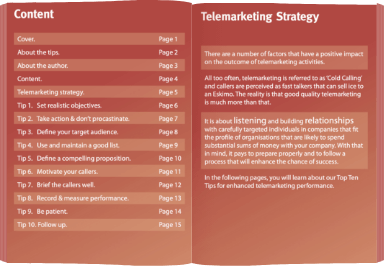We’re all keen to generate growth for our businesses. New business is the lifeblood of most small businesses. Hence, concerted effort in lead generation is essential for most companies in order to grow.
But prospects can smell fear and anxiety when service providers over-sell and try too hard to convince them how great their products or services are and thus how it would be a no-brainer not to buy from their organization.
In sales situations, I tend to take the opposite road to the pushy sales approach used by some salespeople. I do this whilst also taking great care not to come across as arrogant or uncaring. Of course, I want the business and demonstrate that in what I say. But I don’t want any business. It has to fit and I need to feel confident that we can do a good job. And, what’s even more important, is that the solution I offer needs to have the potential to work for my clients. Does the ROI equation work? Over what timeframe? Does the proposition deliver what prospective clients might want to buy? Is b2b telemarketing the right route to market? Does the client have the credentials to support what they’re trying to achieve? Are their new business objectives realistic?
To ensure that I come across with integrity and give good advice to potential clients, I ask a number of consultative questions. These help me establish if there’s a fit and a decent chance of success.
This approach ensures that my prospect understands that I’m genuinely interested in them. It also illustrates that I am willing to take the time to understand their business rather than solely focusing on pitching mine. I don’t want them to feel that I’m trying to shoehorn my services where they might not be best suited. Once I have the answers, I am able to provide advice. And that might be to use an alternate method of marketing to generate sales for their business.
If you use good questions, you will
-
-
- come across with more integrity
- build more credibility
- demonstrate an interest in your prospect
- get onto more shortlists
- win more business against competitors who may be more sales
- retain customers longer since you set realistic expectations
-
Of course, it mustn’t sound like a market research survey but good questions reduce the likelihood of you being seen as a salesman and pushy. They also allow you time to think and prevent you from dominating the conversation which is most definitely not a good idea in a sales environment. That’s especially the case when the value of sales is higher.
Some of the questions I use are shown below. These are what we ask for our business to determine the viability of any telemarketing or appointment setting activity we might undertake for our clients. Clearly, there will be questions that are more relevant for your type of business.
1. Who are your typical customers? What sectors? What size of business? What location?
2. Who (what job function) makes the buying decision for your service or product?
3. What’s the gestation period for purchase decisions if a prospect were to buy?
4. What’s the typical value of sales on an annual or one-off basis? This helps determine ROI.
5. What level of competition do you have?
6. How important is what you offer to prospective customers?
7. How strong is what you offer compared to competitors?
8. How big is the marketplace?
9. Are there any market drivers that push prospects towards the purchase?
10. What problems do you solve for your prospects?
My aim is firstly to establish whether telemarketing is the right route to market for them. It isn’t to sell to every prospect. We cannot work for everyone and we are not right for everyone. We turn potential customers away. That’s not because we always have the luxury of a flood of new business opportunities. Business is good but that’s not the reason. The reason is that it’s important to give good advice. If you want to build long-term sustainable relationships, you need to become a trusted adviser and a potential partner.
Someone that looks out for the customer’s interest. If you do that, you will come across less like a salesman and more like someone they’ll want to do business with…. for the long term. Customers will also be more likely to recommend you and your business. You will sound less desperate, more assured, and confident and will be more likely to have higher strike rates when it comes to converting more new business. Ultimately, the best way to sell is not to sell!






